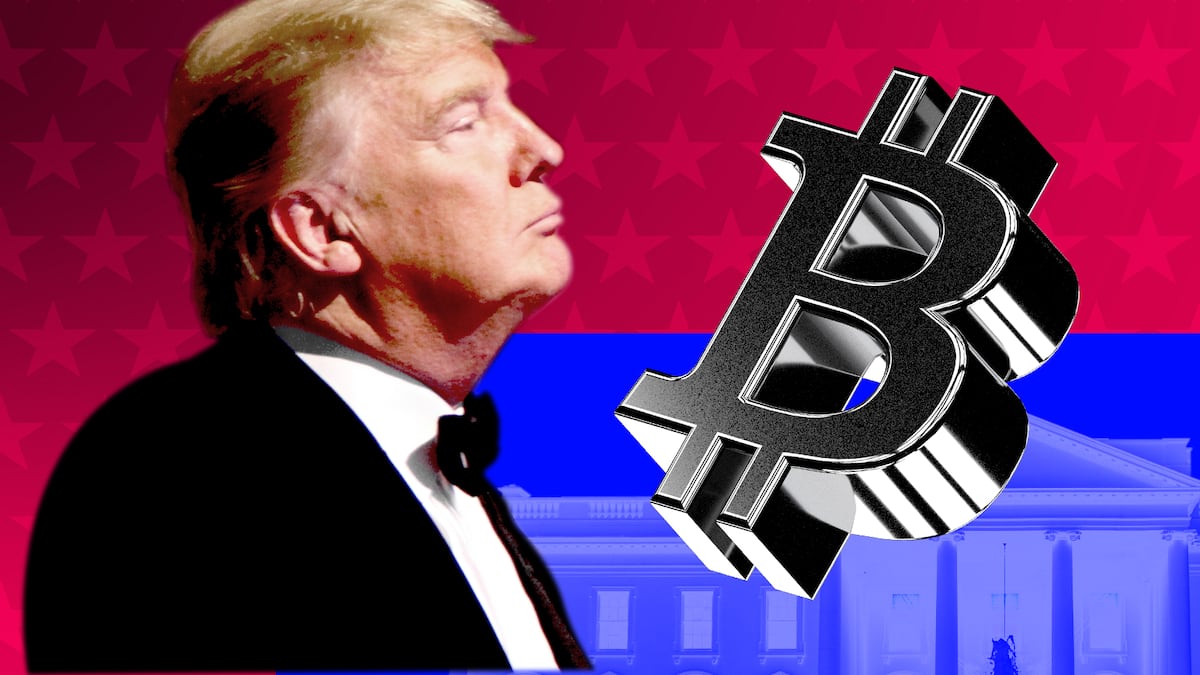- Trump has promised to bring a major pro-crypto shift to the US.
- Regulators worldwide have been rolling out regulators for several year.
- Trump promises to set up a crypto-friendly regulatory landscape in the US.
President-elect Donald Trump began touting pro-crypto campaign promises in 2024 with the aim to transform the US into the “crypto capital of the world.”
He has a lot of catching up to do.
For the last four years, the European Union, the UK, and Asian nations such as South Korea and Singapore have been rolling out a number of measures to curb fraud, establish licencing regimes, and take other steps to watchdog an industry that now worth $3.7 trillion.
With Trump poised to be inaugurated as president on Monday, Noelle Acheson, a blockchain analyst, said the race to clarify the rules of the road is bound to intensify worldwide.
“One of the many positive side effects of Trump’s win would be an international scramble to set up crypto market frameworks as nations start to worry about being left behind,” Acheson wrote in her latest Crypto is Macro Now newsletter. “The race is real,” she said.
These are the countries who have already been making moves:
The UK
In 2022, then-financial minister Rishi Sunak pledged to transform the UK into a hub of crypto innovation.
As prime minister, those efforts accelerated with draft bills to regulate the industry making it through parliament. New regulation to rival the EU’s Markets in Crypto-Assets regulation was on the cusp of hitting the floor at Westminster by the summer of 2024.
Then Sunak called a snap election and was removed from No. 10. The crypto bill work work seemed to stall — irking the industry.
“We’re behind the rest of Europe, and then other jurisdictions in Asia and the Middle East,” said Ian Taylor, board adviser to CryptoUK, lamenting the UK’s standing.
That may be changing.
In November, Keir Starmer’s new government slated the release of its regulatory framework for cryptocurrency and stablecoins for early 2025.
His Labour Party has pledged to create a single, streamlined regime for digital assets.
South Korea
South Korea may end its de facto ban on local institutions trading cryptocurrencies, reported local media outlet YonHap.
Until now, only verified retail investors could trade crypto — with banks instructed to not open institutional accounts.
This month, South Korea’s Financial Services Commission announced plans to collaborate with the Digital Asset Committee to phase in institutional trading, beginning with non-profits, IFC Review reported.
The nation’s regulators are also considering opening up the market for spot crypto ETFs.
The country is known for the Kimchi Premium. This refers to the gap in cryptocurrency prices in South Korean exchanges compared to other exchanges located globally. Usually, the prices in the country’s exchanges is higher than in other places around the world.
This creates arbitrage opportunities for investors. During a political crisis in late 2024, the price of XRP on South Korean exchanges dropped dramatically. Many traders cashed in by buying the crypto in South Korea and then selling it elsewhere.
Malaysia
Malaysia wants to catch up with the rest of the world.
Prime Minister Datuk Seri Anwar Ibrahim is reportedly mulling creating new policies for digital assets after a visit to Abu Dhabi where he met with United Arab Emirates and Binance officials.
“This is an evolution which happens quickly and requires us to be equally fast. Malaysia should not be left behind while mired in an old financial system,” said Answar, according to the New Strait Times.
Thailand
Thailand is vying to become a digital assets hub.
Its latest effort: Bitcoin exchange-traded funds.
Thailand’s securities regulator is considering allowing retail investors and institutions to invest in local Bitcoin ETFs, Bloomberg reported.
Regulators are also considering a sandbox in the southern city of Phuket. It would test Bitcoin to pay for tourism.
Singapore
Singapore has long vied to become a crypto hotbed by enticing digital asset firms with dedicated regulatory regimes, tokenisation projects, and sandboxes.
It’s also issued more crypto licences. Last year, it issued 13 licences to the likes of OKX and Upbit, as well as to global heavyweights Anchorage, BitGo, and GSR.
That’s almost double the authorisations than the previous year, Bloomberg reported.
However, Singapore’s market watchdogs are unafraid to put their foot down. Users trying to access Polymarket were surprised with a blockade and notice from the Gambling Regulatory Authority that said Polymarket is an “illegal gambling site operated by an unlicensed gambling services operator.”
Cambodia
Cambodia may be starting to backpedal on its crypto ban.
The National Bank of Cambodia published a first set of rules for banks and payment companies. Financial entities can now be exposed to tokenised assets and qualifying stablecoins. However, first party exposure to cryptocurrencies is still not permitted, Ledger Insights reported.
Cambodian news outlets maintained, however, that a ban is still very much intact.
Pedro Solimano is a Markets Correspondent at DL News. Got a tip? Email him at psolimano@dlnews.com.


